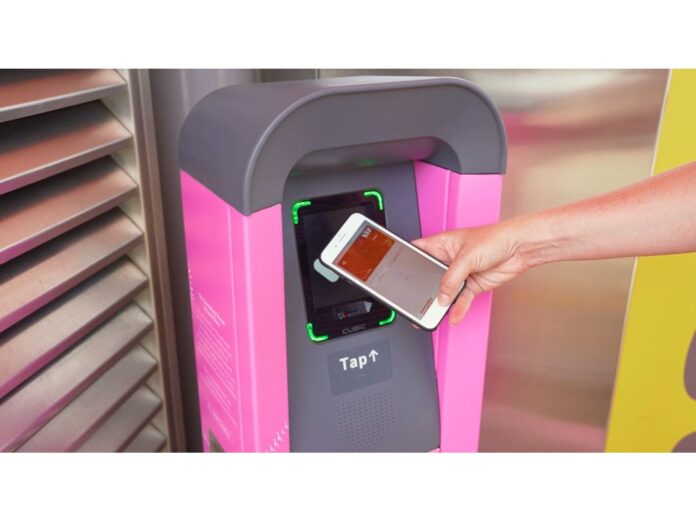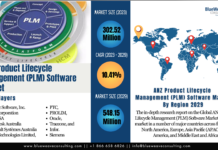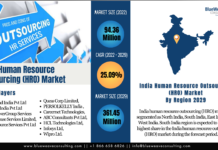BlueWeave Consulting revealed that the global smart ticketing market was worth USD 6.57 billion in the year 2020. The study reveals that the market is projected to grow at the CAGR of 12.4% during 2021-2027 (forecast period), earning revenue of around USD 15.0 billion by the end of 2027. The smart ticketing market is gaining momentum due to the integration of advanced technologies such as contactless cards, and technology-enabled transit systems in smart ticketing systems. The increased use of cashless transactions by smart ticketing has provided a diverse payment option to the customers, leading to increased customer adoption of this market.
Additionally, the growth of the global smart ticketing market can be attributed to the increasing demand for smart ticketing industries from various industries, such as tourism, entertainment, and sports. The big spike in the intelligent transportation industry is also driving the growth of the smart ticketing market worldwide. For example, Brescia Mobilità, which oversees public transportation in Brescia and the surrounding regions, is collaborating with services and solutions provider Conduent Transportation to implement a contactless payment platform on its bus fleet. The system will be operational on all 220 buses that serve the Italian city and 14 nearby municipalities. Brescia Mobilità is an incredible example of how public transportation networks are rapidly modernizing by using technology to provide smooth, user-centric services that improve the transit experience.
However, the high cost of set-ups, data security, and the need for a centralized network for smart ticketing services are some of the roadblocks to the market’s growth. To overcome the security issues, key players in the smart ticketing market are incorporating blockchain technology, digital sensors, and artificial intelligence (AI) into smart ticketing services.
Technological advancements Driving the Smart Technology Market Worldwide
Integration of smart technologies in the smart ticketing market has diversified the range of services it provides to the consumers. Technologies such as contactless smart cards, virtual reality (VR), maps, wearable devices, smartphones, and AI are being increasingly incorporated into smart ticketing. Rising smart technology integration has resulted in substantial economic growth for countries such as India, Singapore, China, and the UAE. Additionally, bolstering the implementation of smart ticketing systems stimulates the transportation industry, which in turn benefits the tourism industries of Europe and Asia-Pacific.
Increasing demand for smart ticketing systems Propelling Market Growth
Smart ticketing services are utilized in a variety of industries, including sports, entertainment, transport, parking, healthcare, and the banking, financial services & insurance sector (BFSI). These services are being preferred in various avenues due to the easy management of data transactions and the convenience of cashless transactions. Among all, the transport industry has the greatest demand for smart ticketing. It provides the consumers with the option of advanced booking, secure data collection, time reduction, and a range of payment options. The majority of sports events that are being organized around the globe utilize smart ticketing on their booking platforms. Technologies such as QR code, NFC, RFID, and others have upgraded the services and increased their application in many industries, thereby propelling the growth of the Global Smart Ticketing Market.
The E-ticket segment holds the largest share of the Smart Ticketing Market
Based on product type, the smart ticketing market has been categorized into the ticket machine, e-ticket, e-kiosk, request tracker, and others. Among these, the e-ticket segment holds the largest market share. This can be attributed to the widespread use of e-tickets in sports events, transit systems, and movie ticket bookings. The security provided by e-tickets over paper tickets is their unique selling point. Additionally, increased use of smartphones, availability of services on mobile apps, and ease of cashless transactions have increased the demand for the e-ticket segment. However, the e-kiosk segment is also expected to grow during the forecast period.
Impact of COVID-19 on Smart Ticketing Market
The COVID-19 pandemic has had a negative impact on the transport industry across the globe. Since COVID-19 was declared a pandemic, there has been a major decline in transportation activities around the world due to travel restrictions imposed by the governments of different countries. The sharp drop in ridership since the nationwide lockdowns has placed public transportation networks across the globe in severe financial jeopardy. Business growth has also been hampered due to the lack of investments by financially affected manufacturers and reduced government initiatives. However, smart ticketing is still the most preferred mode of billing/booking as it provides a contactless payment option.
Europe Leads the Smart Ticketing Market
The smart ticketing market is categorized into North America, Europe, the Asia-Pacific, Latin America, and the Middle East & Africa, wherein Europe accounts for the largest share in the global smart ticketing market. Europe is the center of the world’s most prestigious travel and sporting activities. Moreover, these two industries are major end-users for the smart ticketing market. The smart ticketing market in Europe is also thriving because of large sports events in Germany and increasing tourism in Paris (France) that utilizes the services of smart ticketing widely. These are the primary factors contributing to the growth of the smart ticketing market in this region.
However, the Asia-Pacific region is also likely to witness the fastest growth during the forecast period. The region is expected to register a CAGR of 14% in the forecast period. Several emerging economies, such as India, are growing their efforts to promote the digitalization of money, which is driving the growth of the smart ticketing market. For example, the Indian government launched the Digital India Program to digitalize payment methods across the country. Such initiatives combined with the surge in the use of smartphones in this country have led the majority of the population to adopt smart ticketing services for ticket booking/billings and smart cards.
Smart Ticketing Market Competitive Landscape
The smart ticketing market is moderately fragmented and is witnessing the entry of new players with favorable government initiatives. The key players dominating the smart ticketing market are HID Global Corporation, Thales Digital Identity, and Security, NXP Semiconductors N.V., Giesecke & Devrient GmbH, Infineon Technologies AG, CPI Card Group Inc, Inside Secure, Xerox Corporation, Cubic Corporation, Atsuke, Cammax Limited, Conduent Inc., and other prominent players. In order to increase their customer base, players are investing in product developments and joint ventures. Aside from that, the market players are competing by offering customers personalized services and integrated payment solutions.
The in-depth analysis of the report provides information about growth potential, upcoming trends, and statistics of the global smart ticketing market. It also highlights the factors driving forecasts of total market size. The report promises to provide recent technology trends in the global smart ticketing market along with industry insights to help decision-makers make sound strategic decisions. Furthermore, the report also analyses the growth drivers, challenges, and competitive dynamics of the market.
Contact Us:
BlueWeave Research Blog
Phone No: +1 866 658 6826
Email: info@blueweaveconsulting.com














